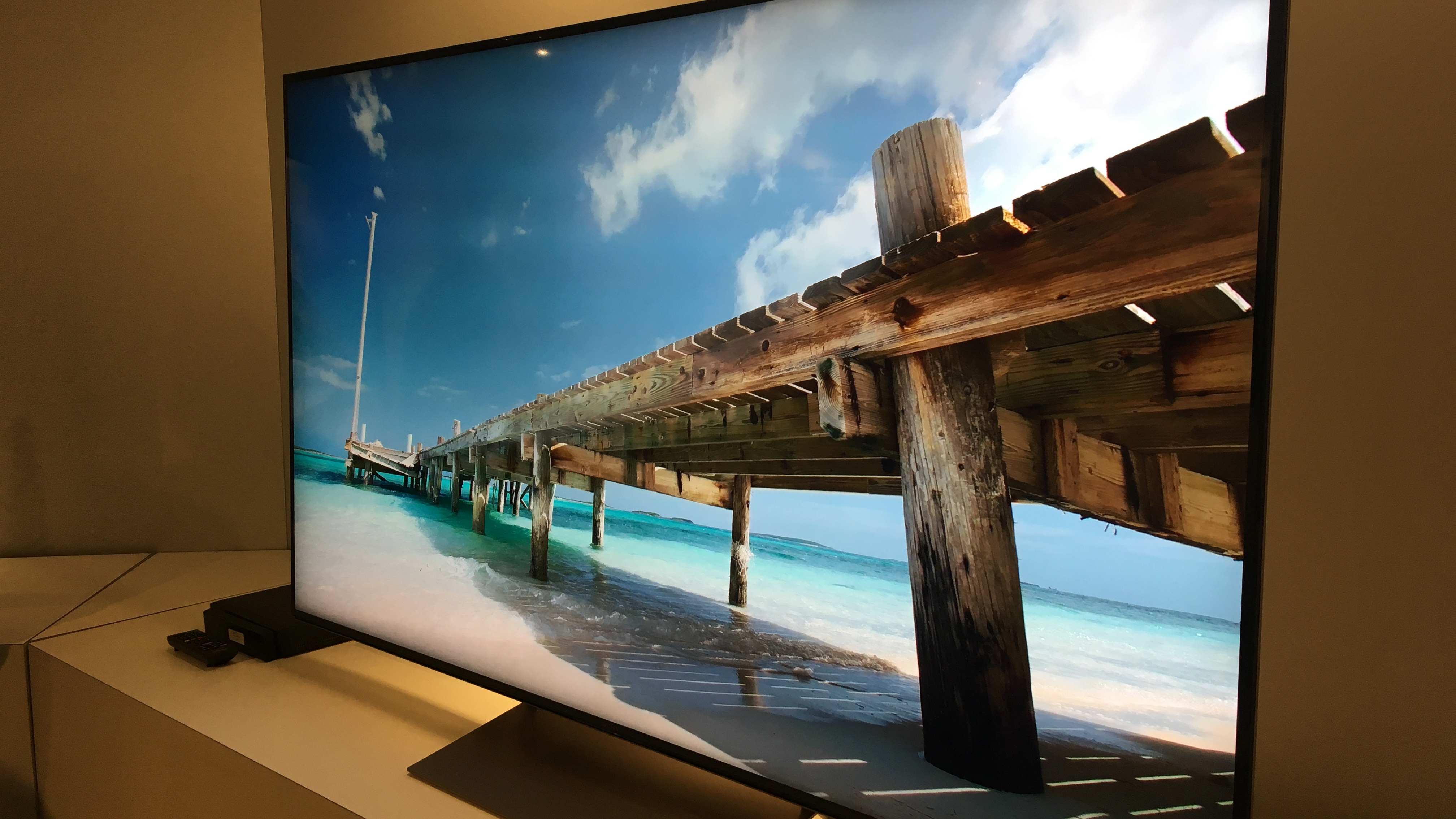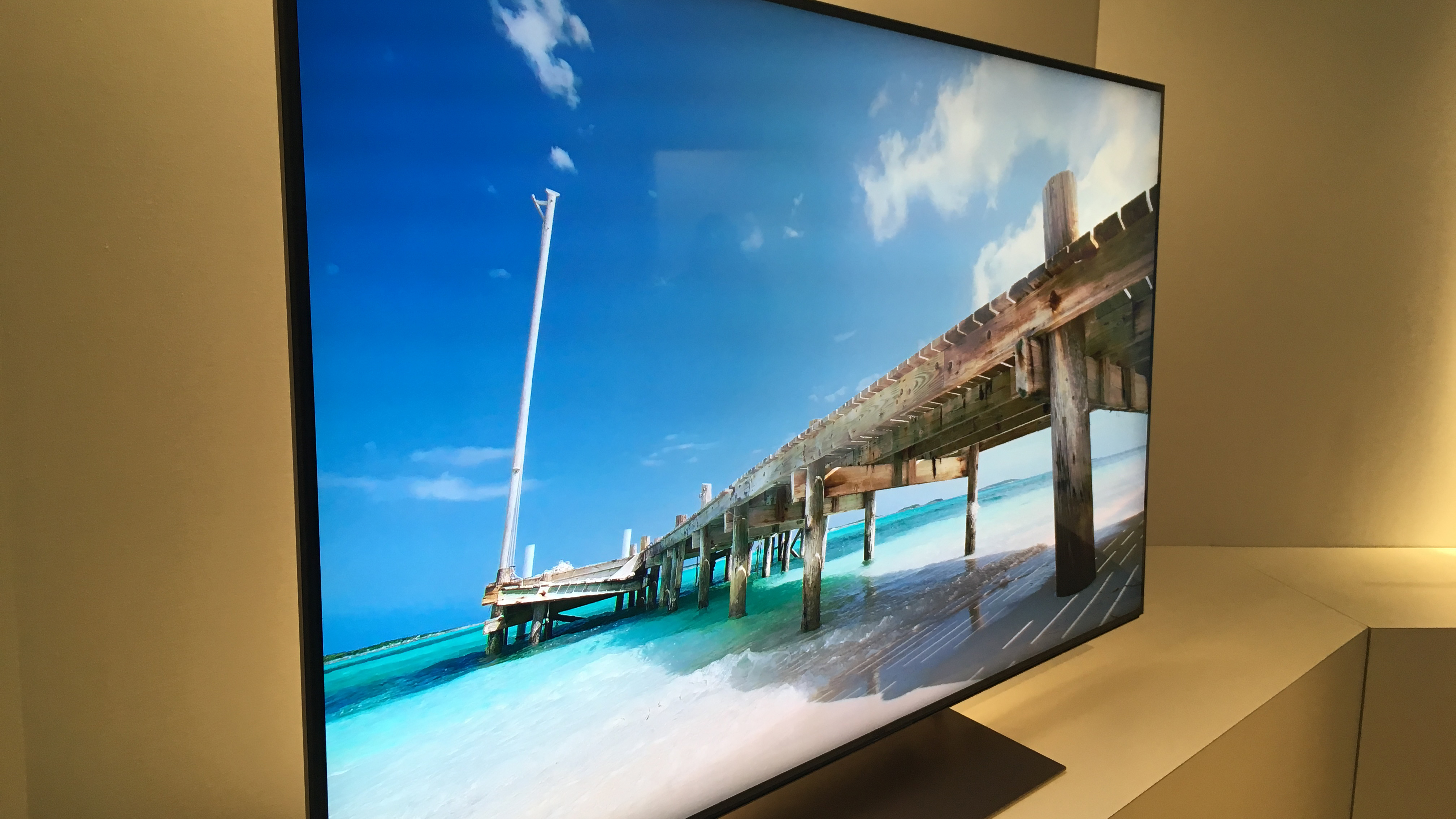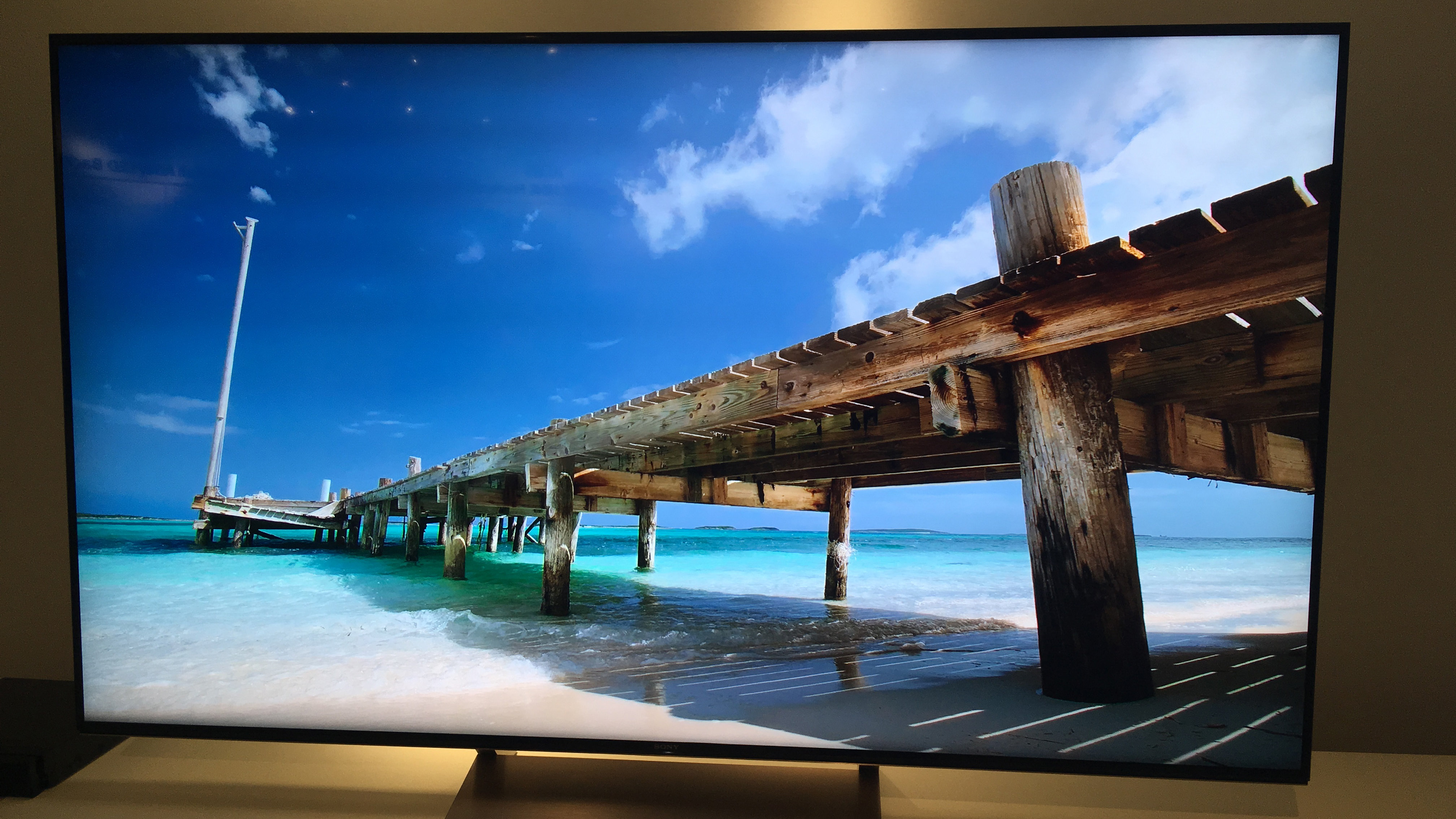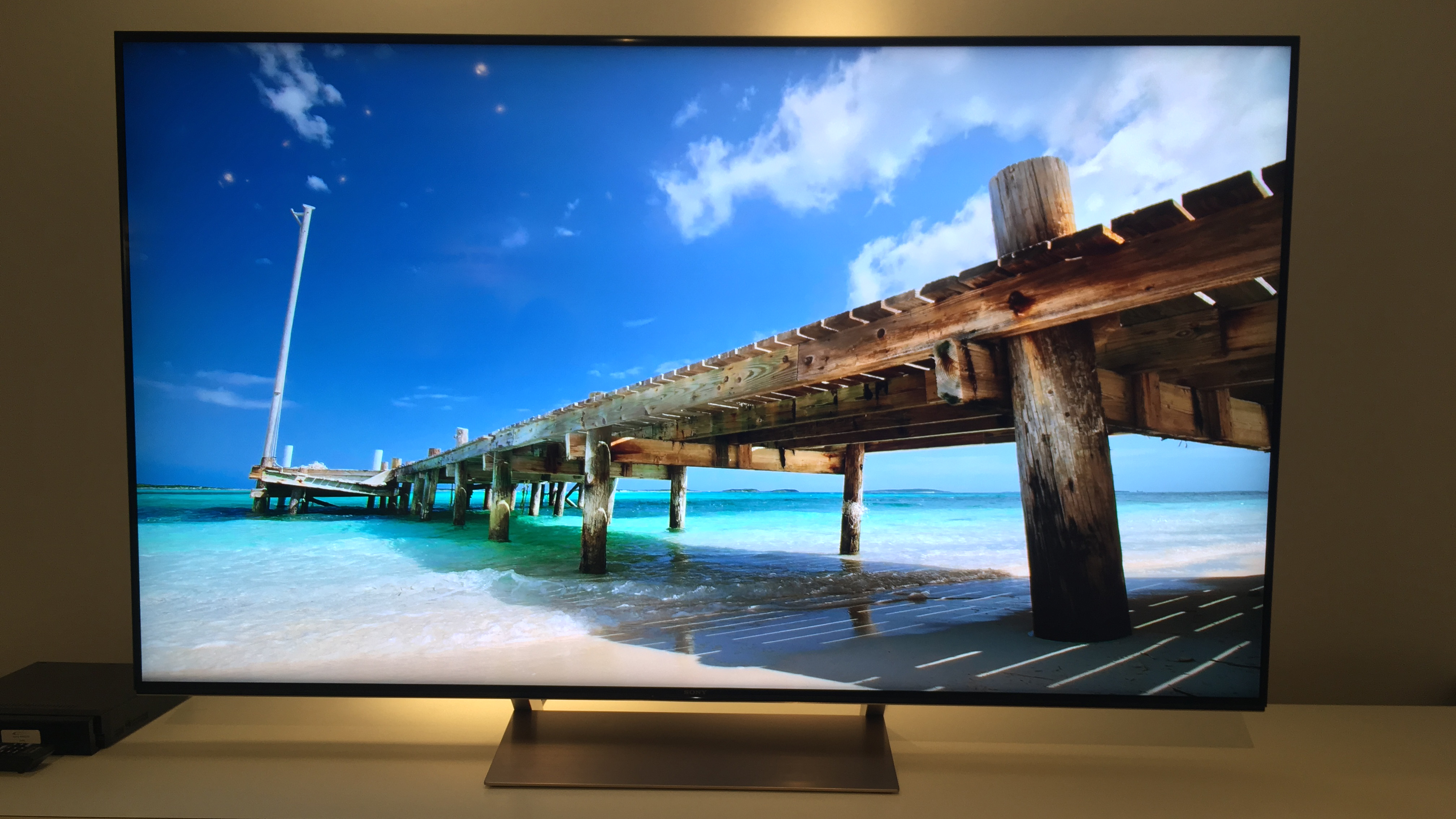Early Verdict
Sony's X930E manages to fit several features found on Sony's higher-end ZD9 into a much more mid-range offering, with some results that, from initial inspection, look very promising indeed.
Pros
- +
Impressive HDR upscaling
- +
Local dimming much improved
- +
Full suite of HDR standards supported
Cons
- -
Edge-lit local dimming
- -
Likely to be pricey
Why you can trust TechRadar
Sony's X930E line is the third-most premium of the manufacturer's 2017 lineup, behind the ultra-premium Sony Bravia A1E OLED and the X940E.
And, while it could be seen as an awkward middle sibling between the higher-end offerings and the rest of the lineup, we came away from a recent Sony event most impressed with the X930E.
Yes, it doesn't have the full-array backlight of the X940E or the insane contrast of the A1E, but it has enough clever tech up its sleeve to deliver a seriously good picture performance, and we've got our fingers crossed that its mid-range positioning means its eventual price doesn't leave our collective wallets in too much of a state.
Design
So first things first: the X930E is available in 65-inch and 55-inch versions. We spent our time with the 65-inch model, but if you want to go any bigger then you'll have to opt for the X940E, which sits at a colossal 77 inches.
The rear of the set is a slightly ugly cream color. Previous Bravia sets have opted for what we think is a much more stylish dark grey, but this model goes for a cream that's a similar hue to what you might find on the walls of a low-budget rental property.
But aside from its color (which, let's be honest, you're unlikely to spend too much time looking at) Sony has been very clever in how it's approached the back of the set.
Cables sit behind removable plastic covers, and can be routed through the set's legs to ensure they're almost invisible when viewed from the front of the set.
Sign up for breaking news, reviews, opinion, top tech deals, and more.

Performance
The headline feature on the new panel is its Slim Backlight Drive+ technology. The set's predecessor, last year's XD93, featured a similar technology, but Sony has made some clever improvements in this year's model.
Both last year's X930D and this year's X930E use edge-backlighting technology, meaning the sets have rows of LEDs along the edges of their screen which can be turned off to make darker areas of the image go even darker.
This isn't advanced as a full-array backlight, which places LEDs behind the panel itself for much more accuracy, for that you'll have to opt for the more premium X940E.
The difference between the XBR-X930D and the XBR-X930E is that this year's model places these rows of LEDs on the top and bottom of the screen rather than the left and right.
This means each LED is serving a much smaller (vertical) area, which results in a doubling of the number of backlight zones.
This helps ensure that the images brightness is much more focussed. Rather than having light that bleeds over into darker areas of the image it can instead be focussed on a small glint of sunlight, creating a much more subtle, yet striking, image.
Suffice to say the X930E knows how to produce a solid HDR image, and will also support the three most common HDR standards around today: HDR10, Dolby Vision and Hybrid Log Gamma.

The second part of the story concerns the X1 extreme processor, which has made its way from last year's premium ZD9 set into the X930E.
It's not quite as good an implementation as the ZD9, but the colors this set is capable of are really fantastic, and a massive improvement over the X930D, which the set was demoed alongside.
The X930E also does a fantastic job of upscaling SDR content to HDR, and suffers from none of the color-banding issues that such upscaling can create on other sets.
All of this combines to create a fantastic level of image quality. Colors are rich and vibrant, and both highlights and darker portions of the image have a nice level of contrast.

Early verdict
Away from the premium flagships, the Sony Bravia XBR-65X930E is looking like it might just be the TV to beat in the mid to high-end market.
With its selective inclusion of many of Sony's high-end technologies, the set boasts a level of picture quality that we came away very impressed with, and a full suite of support for various HDR standards means this isn't a set that's going to be outdated any time soon.
The big question now is price. If it ends up being priced like a flagship then the X930E could struggle to compete with the OLED competition, but if it manages to find a solid mid-range price point then Sony could have a big hit on its hands.

Jon Porter is the ex-Home Technology Writer for TechRadar. He has also previously written for Practical Photoshop, Trusted Reviews, Inside Higher Ed, Al Bawaba, Gizmodo UK, Genetic Literacy Project, Via Satellite, Real Homes and Plant Services Magazine, and you can now find him writing for The Verge.
What is a hands on review?
Hands on reviews' are a journalist's first impressions of a piece of kit based on spending some time with it. It may be just a few moments, or a few hours. The important thing is we have been able to play with it ourselves and can give you some sense of what it's like to use, even if it's only an embryonic view. For more information, see TechRadar's Reviews Guarantee.
